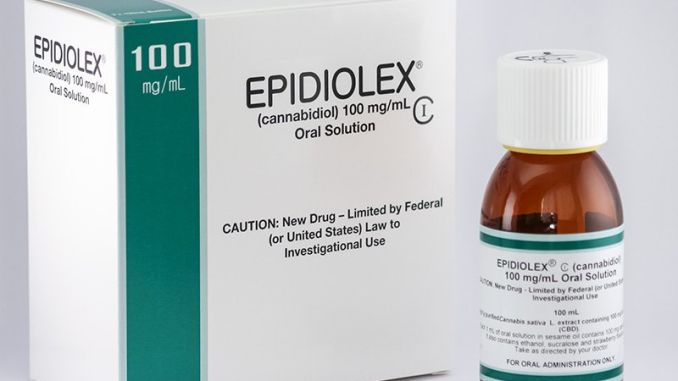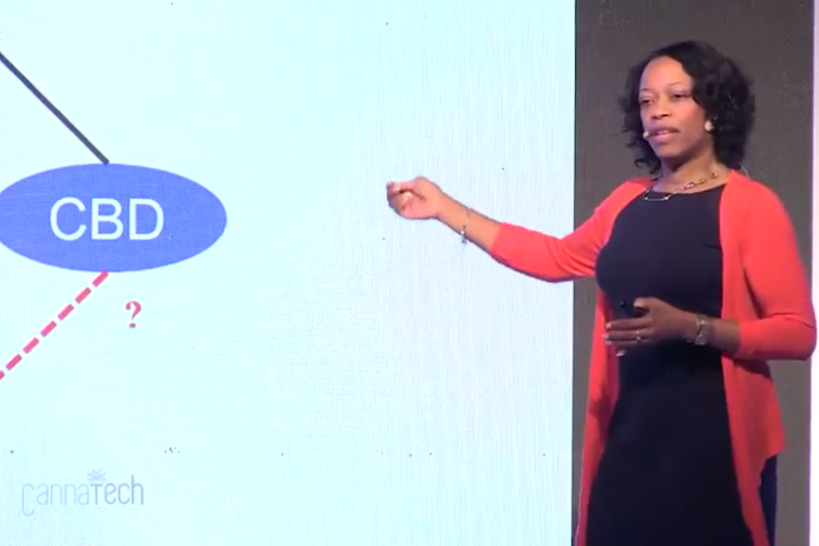Scientists have found that cannabidiol (CBD) oil can reduce cravings in recovering heroin addicts by up to 300% and make them less anxious or stressed.
The researchers, from the Icahn School of Medicine at Mount Sinai in New York, used Epidiolex in their trial, the GW Pharma medicine which has been approved in the US for treating epilepsy.
Published in the American Journal of Psychiatry, the research led by Dr Yasmin Hurd (pictured) followed on from her past work which found CBD reduced heroin dependency in animals.
It comes amid an opioid epidemic in the US, with almost 400,000 people dying of overdoses from drugs including heroin, morphine and fentanyl since 2000.
In the UK, over 3,000 people die a year through overdose and 42% of all treatment entries for problematic drug use at clinics is for heroin. There are a further an estimated 330,445 high risk opiate users in the UK so this is finding with great relevance to a problematic social situation in the UK which politicians are increasingly becoming involved in the debate of.
Indeed, cannabis per se, not just CBD, has been found to be an effective ‘exit drug’ from opioid addiction. And THC has been found to be more therapeutic than CBD.
Cravings are very dangerous for recovering addicts because they can lead to relapses and sometimes overdoses if their tolerance dropped while they were clean.
Drugs that have been used until to help heroin addicts, such as methadone, cause concern because they are part of the same drug class as heroin, are addictive themselves, and are tightly controlled by the government. CBD, however, was not found to be addictive.
“Our findings indicate that CBD holds significant promise for treating individuals with heroin use disorder,” said Dr Hurd.
“A successful non-opioid medication would add significantly to the existing addiction medication toolbox to help reduce the growing death toll, enormous health care costs, and treatment limitations imposed by stringent government regulations amid this persistent opioid epidemic.”

The study split 42 people with addiction into three groups; they were given either 800mg of a CBD solution, 400mg, or a placebo.
Having been addicted to heroin for 13 years on average, thet then watched videos of people taking drugs.
Afterwards the patients were asked to rate their drug cravings and anxiety levels, and experts measured their body temperature, blood pressure and heart rate.
Men and women in CBD groups were found to rate their cravings two to three times lower than the placebo group.
The CBD also reduced the former addicts’ heart rates and blood pressure, as well as their levels of stress hormone cortisol.
The amount of CBD someone was given did not appear to affect the amount by which their responses changed, it was said to be an on or off effect.
Side effects were mild, with only some patients reporting headaches, tiredness or diarrhoea.
Dr Julie Holland, a psychiatrist in New York who was not involved in the research, told CNN that CBD “not only manages the anxiety and cue/craving cycle, it also diminishes the original pain and inflammation that leads to opiate use in the first place”.
Dr Hurd plans to follow it up with follow-up studies to understand exactly how CBD affects the brain and to examine its effects over a longer period.






Comments (2)